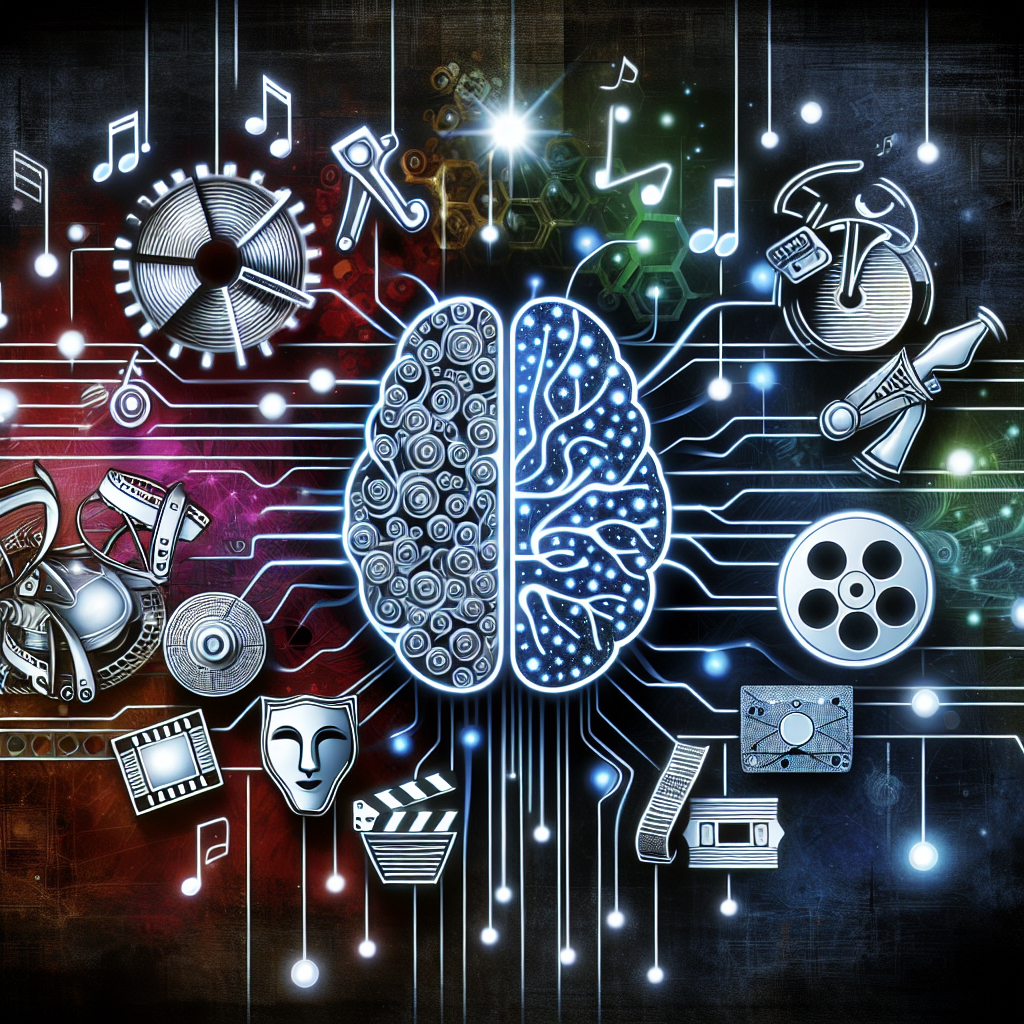Artificial Intelligence (AI) has rapidly become a key player in the entertainment industry, revolutionizing the way content is created, consumed, and personalized for individual users. From recommending movies and music to creating virtual reality experiences, AI is reshaping the landscape of entertainment in ways that were once thought impossible. As technology continues to advance, the future of AI integration in entertainment looks promising, with new possibilities emerging that could transform the industry even further.
One of the most significant impacts of AI in entertainment is its ability to personalize content for users. By analyzing user data and preferences, AI algorithms can recommend movies, TV shows, music, and other forms of entertainment tailored to individual tastes. This not only helps users discover new content that they may enjoy but also increases engagement and retention on entertainment platforms. For example, streaming services like Netflix and Spotify use AI to recommend content based on user behavior, leading to increased user satisfaction and retention rates.
AI is also being used to create new forms of entertainment, such as virtual reality experiences and interactive storytelling. By combining AI with virtual reality technology, developers can create immersive and interactive experiences that blur the line between reality and fiction. For example, AI-powered chatbots can engage with users in real-time, allowing them to interact with characters in a story or game in a more personalized and engaging way. This level of interactivity and personalization opens up a whole new world of possibilities for entertainment creators and consumers alike.
In the world of film and television, AI is being used to streamline the production process and make it more efficient. From scriptwriting and casting to post-production editing and special effects, AI algorithms can help filmmakers save time and resources while maintaining high-quality standards. For example, AI-powered software can analyze scripts and provide feedback on plot structure, character development, and dialogue, helping writers and directors refine their work before filming begins. AI can also be used to generate realistic special effects and CGI, reducing the need for costly and time-consuming manual labor.
Furthermore, AI is revolutionizing the way live events are produced and broadcasted. By using AI-powered cameras and audio equipment, event organizers can capture and stream high-quality footage in real-time, enhancing the viewing experience for audiences around the world. AI can also be used to analyze audience reactions and engagement, providing valuable insights for event organizers and sponsors. This level of data-driven decision-making can help improve the overall quality of live events and increase audience engagement and satisfaction.
Looking ahead, the future of AI integration in entertainment seems bright, with new technologies and applications on the horizon. One exciting development is the use of AI-generated content, where algorithms are used to create music, art, and other forms of entertainment from scratch. While this may raise concerns about the role of human creativity and originality in the arts, it also opens up new possibilities for innovation and experimentation in the entertainment industry.
Another emerging trend is the use of AI in augmented reality (AR) and mixed reality (MR) experiences. By combining AI with AR/MR technology, developers can create immersive and interactive experiences that blend the physical and digital worlds. For example, AI-powered AR apps can provide real-time information and context for users as they navigate a museum or historical site, enhancing the educational and entertainment value of the experience.
In addition, AI is being used to enhance the accessibility of entertainment content for individuals with disabilities. By using AI-powered tools and features, entertainment platforms can provide closed captioning, audio descriptions, and other accessibility options for users with visual or hearing impairments. This level of inclusivity and diversity in entertainment is essential for creating a more equitable and inclusive society.
As AI continues to evolve and improve, the possibilities for its integration in entertainment are endless. From personalizing content and creating immersive experiences to streamlining production processes and enhancing accessibility, AI is reshaping the entertainment industry in ways that were once unimaginable. As we look to the future, it is clear that AI will play an increasingly important role in shaping the way we create, consume, and interact with entertainment content.
FAQs:
Q: Will AI replace human creativity in the entertainment industry?
A: While AI has the potential to generate content autonomously, it is unlikely to replace human creativity entirely. AI algorithms can assist and enhance the creative process by providing insights and suggestions, but ultimately, human creativity and originality are irreplaceable.
Q: How is AI being used to enhance the user experience in entertainment?
A: AI is being used to personalize content for users, recommend movies and music based on preferences, create immersive virtual reality experiences, streamline production processes, and enhance accessibility for individuals with disabilities. These applications of AI help improve the overall user experience and engagement on entertainment platforms.
Q: What are the ethical implications of AI integration in entertainment?
A: The ethical implications of AI integration in entertainment include concerns about data privacy, algorithm bias, and the impact on human creativity and originality. It is essential for entertainment companies and developers to address these ethical considerations and ensure that AI technologies are used responsibly and ethically.
Q: How can individuals stay informed about AI developments in the entertainment industry?
A: Individuals can stay informed about AI developments in the entertainment industry by following industry news and publications, attending conferences and events, and engaging with experts and professionals in the field. By staying informed and educated about AI technologies, individuals can better understand their impact on the entertainment industry and society as a whole.

